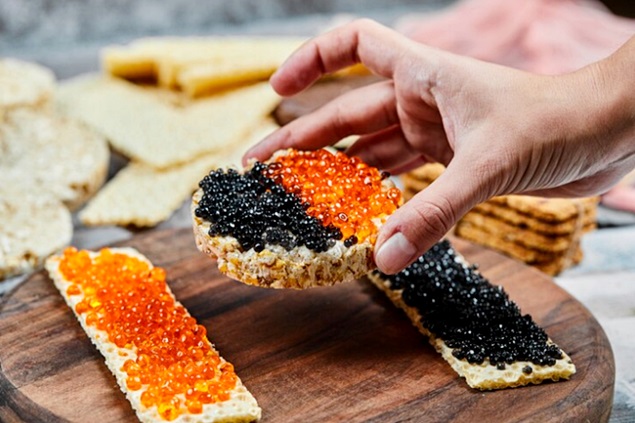1457

According to the European Supermarket Magazine, almost half of the commercial caviar products in Europe are illegal, with some not containing any trace of sturgeon, as revealed by a sample study conducted by researchers.
Poaching Issue
The findings, part of the study titled "Poaching and Illegal Trade of Danube Sturgeons," were recently published in the journal Current Biology.
Wild caviar, a pricey delicacy made from sturgeon eggs, has been illegal for decades since poaching brought the fish to the brink of extinction.
Currently, legally marketable caviar in Europe can only be obtained from farmed sturgeon.
As part of the study, researchers conducted genetic and isotopic analyses on caviar samples from Bulgaria, Romania, Serbia, and Ukraine. These nations border the remaining wild sturgeon populations in Europe.
"Poaching Undermines Conservation Efforts"
According to the researchers, led by Arne Ludwig from the Leibniz-Institute for Zoo & Wildlife Research, "The conservation status of Danube sturgeon populations makes each individual important for their survival, and the observed intensity of poaching undermines any conservation effort."
The four sturgeon species still capable of producing caviar in Europe include Beluga, Russian, Sterlet, and Stellate.
The last remaining wild populations of these species in the European Union are found in the Danube River and the Black Sea, according to the report.
Each species has been protected since 1998 under the Convention on International Trade in Endangered Species of Wild Fauna and Flora (CITES).
In 2000, their CITES listing was accompanied by a strict international labeling system for all caviar products aimed at stopping illegal trade.
Study Conclusions
Researchers purchased caviar both online and in-person from various sources, including local markets, stores, restaurants, bars, and aquaculture facilities, as well as five samples confiscated by authorities.
In total, they collected and analyzed 149 samples of caviar and sturgeon meat.
The analysis showed that 21% of the samples came from wild-caught sturgeon, and these wild-caught fish were sold in all the countries included in the study.
The data showed that 29% of the samples violated CITES regulations and trade laws, including caviar listing the wrong sturgeon species or incorrect country of origin.
Another 32% of the samples were classified as "customer deception," including samples declared as wild products that actually came from aquaculture.
The study also found that sturgeon was replaced with European catfish and Nile perch in Romania in a dish called "sturgeon soup."
Demand for Wild Sturgeon
"Our results indicate a continued demand for wild sturgeon products, which is alarming as these products endanger wild sturgeon populations," said the researchers. "Persistent demand fuels poaching and suggests that consumers do not fully accept aquaculture products as substitutes. Additionally, caviar being sold in violation of CITES and EU obligations calls into question the effectiveness of controls in general and the labeling system in particular."
The study authors also suggested that the high volume of illegal poaching activities could be an indicator that local seafood sellers lack adequate income opportunities, which could increase pressure to engage in illegal fishing activities.





